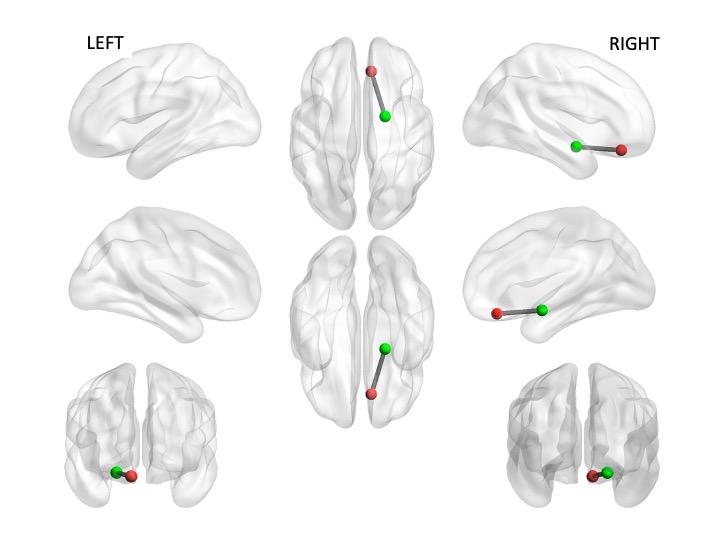Passive monitoring of phone usage shows emotional state of mind

Credit: Jeremy Huckins.
HANOVER, N.H. – September 14, 2020 – Information on social activity, screen time and location from smartphones can predict connectivity between regions of the brain that are responsible for emotion, according to a study from Dartmouth College.
In the research, data from phone usage was analyzed alongside results from fMRI scans to confirm that passively collected information can mirror activity in the brain linked to traits such as anxiety. Predictions based solely on the phone data matched the brain scans with 80 percent accuracy.
The study, presented at ACM UbiComp, an annual conference on pervasive and ubiquitous computing, represents the first time researchers have been able to predict connectivity between specific brain regions solely based on passive data from smartphones.
“Simple information about how someone is using their smartphone can provide a peek into the complex functioning of the human brain,” said Mikio Obuchi, a PhD student in the Department of Computer Science at Dartmouth and lead author of the study. “Although this research is just beginning, combining data from smartphones–rather than fMRI alone–will hopefully accelerate research to understand better how the human brain works.”
According to the research, how often and how long an individual uses their phone provides information about the functioning between the ventromedial prefrontal cortex and the amygdala–two key centers of the brain related to emotional state.
The ventromedial prefrontal cortex is responsible for self-control, decision making, and risk evaluation. The amygdala triggers the “fight or flight” response and helps individuals determine the emotions of others.
In addition to data on social activity, screen time and location, information on exercise and sleep patterns was also collected for the study.
The research found that more screen time, regular exercise, earlier bedtimes, higher social interaction and certain location patterns passively inferred from phone data matched a state of higher functional connectivity between the brain regions. This increased activity indicates a more positive emotional state.
“We are not suggesting that phones should replace technology like fMRI, but they can help individuals and health providers learn more about behavior patterns from everyday observations,” said Jeremy Huckins, a lecturer on psychological and brain sciences at Dartmouth and a co-author of the study.
The research result aligns with clinical evidence showing that stronger connectivity between the ventromedial prefrontal cortex and the amygdala to be associated with lower levels of anxiety and depression. Weaker functional connectivity, on the other hand, represents a more negative emotional state.
Anonymous fMRI data from volunteer participants were placed into two categories divided by low and high brain connectivity levels. By matching phone data against the fMRI results the researchers were able to predict which research subjects had higher or lower connectivity between brain regions with 80 percent accuracy.
According to the research team, the use of passive information from a smartphone can help eliminate the subjectivity that often complicates other information-gathering techniques on emotional well-being such as personal interviews and self-reporting on questionnaires.
The phone information allowed researchers to predict the emotional state of individuals at any given time without intrusive data collection. The data also support predictions of the long-term emotional traits in individuals.
“Hopefully, this study shows how mobile sensing can provide deep longitudinal human behavioral data to complement brain scans,” said Andrew Campbell, the Albert Bradley 1915 Third Century Professor of computer science at Dartmouth and the senior researcher on the study. “This could offer new insights into the emotional well-being of subjects that would just not be possible without continuous sensing.”
The research, published in the Proceedings of the ACM on Interactive, Mobile, Wearable and Ubiquitous Technologies, is part of Dartmouth’s Student Life study that monitors telephone data from student volunteers to determine mental well-being. Over 100 first-year students participated in the year-long study on passive sensing and brain function.
###
About Dartmouth
Founded in 1769, Dartmouth is a member of the Ivy League and offers the world’s premier liberal arts education, combining its deep commitment to outstanding undergraduate and graduate teaching with distinguished research and scholarship in the arts and sciences and its leading professional schools: the Geisel School of Medicine, the Guarini School of Graduate and Advanced Studies, Thayer School of Engineering and Tuck School of Business.
Media Contact
David Hirsch
[email protected]
Original Source
https:/




